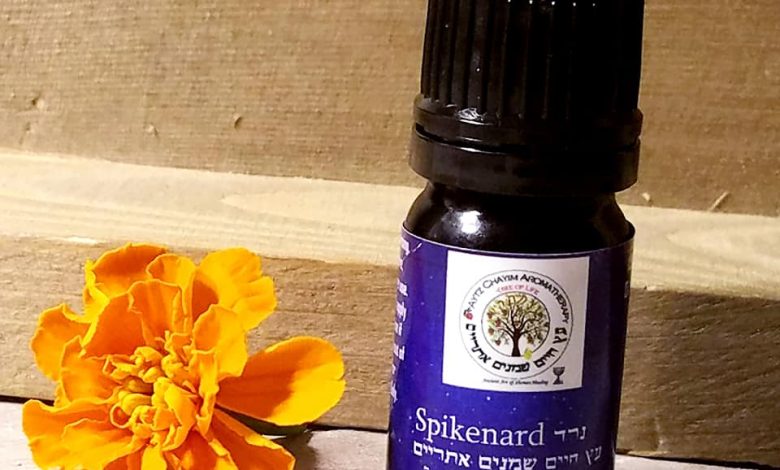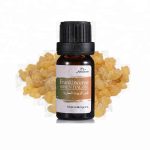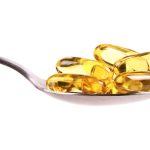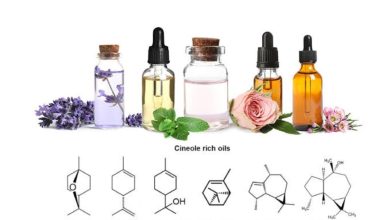Spikenard oil: Uses, Benefits, Spiritual Significance, Side Effects

Spikenard oil is an essential oil derived from the roots of the spikenard plant, scientifically known as Nardostachys jatamansi. This plant is native to the mountainous regions of the Himalayas, particularly in India and Nepal. Spikenard has been used for its aromatic and medicinal properties for centuries, and it has a rich history in traditional medicine and cultural practices.
The oil is extracted from the dried roots of the spikenard plant through steam distillation. It has a unique, earthy, and woody aroma that is often described as musky and slightly sweet. Due to its pleasant fragrance and therapeutic benefits, spikenard oil is commonly used in aromatherapy and perfumery.
The aroma of spikenard oil is quite potent, and a little goes a long way. It is commonly used in perfumery and aromatherapy for its pleasing scent and calming properties. When diffused, it can create a relaxing and soothing atmosphere.
Due to its rich and complex fragrance, spikenard oil has been used historically for its symbolic and spiritual significance as well. It is often associated with feelings of love, devotion, and humility, making it a valued ingredient in various cultural and religious practices.
Health Benefits Associated With Spikenard Oil
In traditional medicine, spikenard oil has been valued for its various potential health benefits, but it’s important to note that scientific research on its specific effects is limited. Some of the potential health benefits associated with spikenard oil include:
1. Relaxation and Stress Relief: The oil’s aromatic properties are believed to have calming effects on the mind and body, helping to reduce stress and anxiety.
2. Sleep Aid: Spikenard oil’s soothing aroma may aid in promoting better sleep and improving sleep quality.
3. Skin Care: It is thought to have anti-inflammatory and antimicrobial properties, which may be beneficial for various skin conditions, such as eczema and acne.
4. Aromatic Use: The pleasant fragrance of spikenard oil makes it suitable for use in aromatherapy, where it can be diffused to create a relaxing atmosphere.
5. Emotional Support: In some traditional practices, spikenard oil is used to support emotional well-being and spiritual growth.
6. Respiratory Health: It has been suggested that spikenard oil might have beneficial effects on the respiratory system, potentially aiding with issues like congestion and coughs.
7. Anti-inflammatory Effects: Some studies suggest that certain compounds found in spikenard oil may possess anti-inflammatory properties, which could be beneficial for various inflammatory conditions.
8. Antioxidant Properties: Spikenard contains compounds that have antioxidant potential, which may help neutralize free radicals and protect cells from oxidative stress.
9. Digestive Support: In traditional medicine, spikenard has been used to support digestive health, though scientific evidence is lacking.
It’s essential to approach the potential health benefits of spikenard oil with caution, as more research is needed to confirm and understand its effects fully. Moreover, individual responses to essential oils can vary, and some people may be sensitive or allergic to certain oils.
Dosage
There were no standardized dosage recommendations for spikenard oil, as scientific research on its medicinal uses is limited. Essential oils, including spikenard oil, are highly concentrated and potent substances, so they should be used with caution.
When using spikenard oil, it’s crucial to dilute it properly with carrier oil before applying it to the skin. The typical recommended dilution ratio is 1-2% essential oil to carrier oil. For example, you can add 1-2 drops of spikenard oil to one teaspoon (5 mL) of carrier oil, such as coconut oil, jojoba oil, or sweet almond oil.
For aromatherapy, you can add a few drops of spikenard oil to a diffuser or a bowl of hot water, but be sure to follow the manufacturer’s instructions for your specific diffuser.
If you are considering using spikenard oil for internal use (which is not recommended without proper guidance from a qualified healthcare professional), it’s crucial to consult with a healthcare provider or a certified aromatherapist to determine an appropriate and safe dosage.
Keep in mind that individual reactions to essential oils can vary, and some people may be sensitive or allergic to certain oils. Before using spikenard oil or any other essential oil, perform a patch test on a small area of your skin to check for any adverse reactions. If you experience any irritation, redness, or discomfort, discontinue use immediately.
Spikenard Oil Spiritual Significance
Spikenard oil has significant spiritual significance in various cultures and belief systems, particularly in ancient times and certain religious traditions. Its use can be traced back to biblical times, and it has been highly valued for its symbolism and spiritual associations. Here are some of the spiritual significances of spikenard oil:
1. Sacred Anointing: In ancient times, spikenard oil was considered a precious and sacred oil used for anointing rituals. It was often reserved for anointing kings, priests, and prophets as a symbol of consecration and divine favor.
2. Symbol of Devotion and Love: Spikenard is mentioned in the Bible in the Song of Solomon as a fragrant spice symbolizing love and devotion. Its aromatic properties were associated with acts of love, both towards others and towards the divine.
3. Meditation and Spiritual Practice: The calming and grounding aroma of spikenard oil has made it popular for use in meditation and spiritual practices. It is believed to enhance the connection with higher consciousness and promote inner peace.
4. Symbol of Humility: Spikenard was considered a symbol of humility due to its unassuming nature and its use as a foot-washing oil in ancient cultures. It represents the act of service and selflessness.
5. Healing and Purification: In some spiritual practices, spikenard oil was used for healing and purification ceremonies to cleanse the body, mind, and spirit.
6. Spiritual Protection: Spikenard oil was believed to have protective properties, warding off negative energies and promoting a sense of spiritual protection.
It’s important to understand that the spiritual significance of spikenard oil varies across different cultures and religious beliefs. While it holds historical and symbolic importance in various traditions, its spiritual effects are largely subjective and may vary from person to person.
If you are interested in using spikenard oil for spiritual purposes, it’s essential to approach it with respect and reverence, being mindful of its potent and concentrated nature. Whether you use it for meditation, prayer, or other spiritual practices, always use it safely and responsibly, and consider any cultural or religious context surrounding its use.
Spikenard Oil Side Effects
As with all essential oils, spikenard oil should be used with caution, as it is highly concentrated and potent. While it is generally considered safe for topical use and aromatherapy when properly diluted, there are some potential side effects and considerations to be aware of:
1. Skin Irritation: Undiluted or improperly diluted spikenard oil may cause skin irritation or allergic reactions in some individuals. Always perform a patch test on a small area of skin before using it more extensively.
2. Sensitivity: Some people may be more sensitive to essential oils, including spikenard oil. If you experience any adverse reactions, such as skin redness, itching, or irritation, discontinue use immediately.
3. Photosensitivity: Spikenard oil, like some other essential oils, may cause photosensitivity, making the skin more sensitive to sunlight. Avoid direct exposure to sunlight or UV rays on areas where the oil has been applied for at least 12-24 hours.
4. Avoiding Contact with Eyes and Mucous Membranes: Essential oils should not come into direct contact with the eyes or be ingested. If accidental contact occurs, flush the area with plenty of water and seek medical attention if needed.
5. Pregnancy and Nursing: Pregnant and nursing women should exercise caution when using essential oils, including spikenard oil. It’s best to consult with a healthcare professional before using any essential oil during pregnancy or while breastfeeding.
6. Interactions with Medications: If you are taking any medications or have underlying health conditions, consult with a healthcare provider or a certified aromatherapist before using spikenard oil to ensure there are no potential interactions.
7. Not for Internal Use: Spikenard oil should not be ingested, as it can be toxic and cause adverse effects when taken internally.
8. Use in Moderation: As with any essential oil, moderation is key. Excessive use of spikenard oil may lead to sensitization or other adverse reactions.
Always purchase high-quality, pure spikenard oil from reputable sources to ensure its safety and effectiveness. It’s important to remember that individual responses to essential oils can vary, so it’s crucial to pay attention to how your body reacts when using them.
If you have any concerns or questions about using spikenard oil, especially if you have pre-existing health conditions or are unsure about its suitability for your situation, seek advice from a qualified healthcare professional or a certified aromatherapist.





